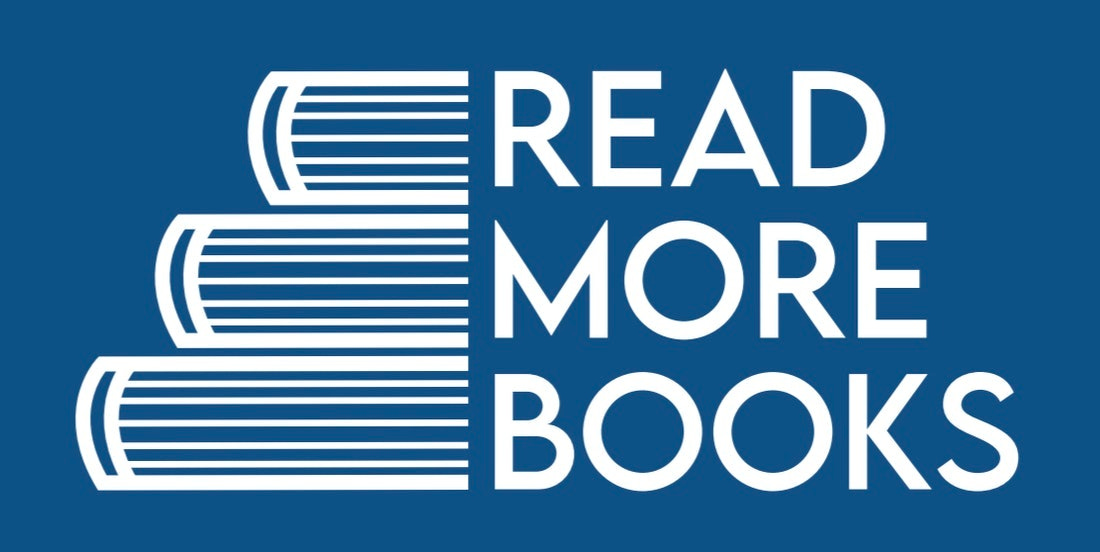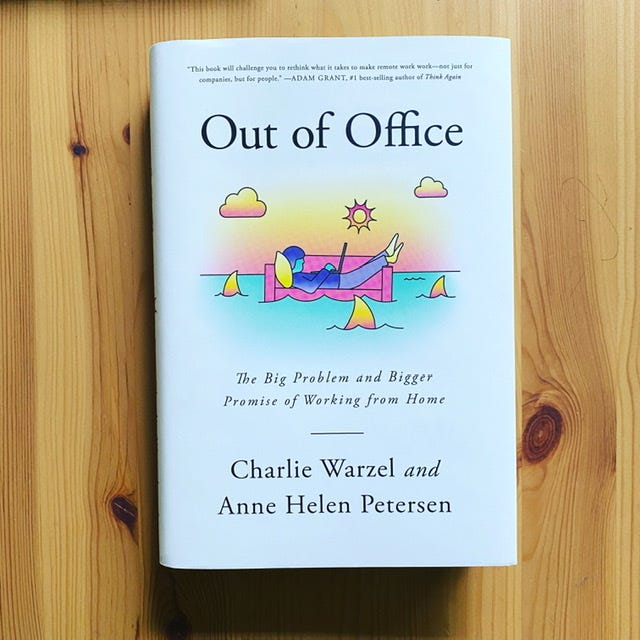📚 What to Read Next (No. 207): rethinking work
Covering Anne Helen Petersen's "Can't Even" and "Out of Office"
For the last six months I’ve been in a season of rethinking work.
At the beginning of 2021, I was a full-time contractor for a men’s lifestyle website. I had been in that role for almost a decade and the day-to-day was incredibly rewarding. But as a contractor, benefits were minimal. Health insurance was a pain in the neck to navigate and came straight out of our checking account. It was a flexible job, but as part of a three-person team, it was hard to ever feel like I could take a real break. (Which was self-imposed, I fully admit.) I moved on from there simply because it felt like it was time.
In mid-2021, I accepted a job with a small startup in the self-publishing space. The compensation improved and I had benefits for the first time in nine years, but the culture was all hustle. I was aware of that—and had been warned in interviews, in fact—but didn’t really know the reality until I was in it. The pace was almost frenetic.
Near the end of 2021, I accepted a job with a big tech company. The compensation and benefits improved a bit more, but most surprising is how rewarding work can be when you don’t have to constantly think about it. I was off for the week between Christmas Eve and New Year’s and didn’t once check Slack or my work email. In my working career, that’s never happened.
What a change.
In part, my attitudes towards work have shifted as I’ve read more about America’s culture of work. Four Thousand Weeks was a big part of that shift, as were the two books featured below, both authored by dynamo writer Anne Helen Petersen.
Let’s jump in.
Can’t Even: How Millennials Became the Burnout Generation by Anne Helen Petersen
“The hours we’re not technically working never feel free from optimization.”
News broke just this week that November set yet another monthly record for the number of American workers who quit their job. (I’m included in that one! 🙋♂️)
What’s the deal?
Seeing as Millennials are the largest portion of the workforce, is it possible that there’s a generational reckoning happening in our country? That an entire era of workers are realizing there’s more to life than work?
Anne Helen Petersen tackles those questions in her 2020 book Can’t Even, which is even more salient today than when it was originally published.
At the start, Petersen gives readers some generational history and context about how work became so all-consuming—and how companies began taking advantage of their employees through the vague ideas of “efficiency” and ever-increasing “productivity” standards.
Work in 2022 is just not the same beast that it was ten, twenty, fifty years ago.
There are a number of factors (economic inequality, political volatility, etc.), but even just the advent of the smartphone has fundamentally altered how employees relate to their work.
DING! It’s Slack. DING! It’s a new email to your work inbox. DING! Your coworker, who’s now part of your Facebook feed, made a big life announcement.
Work permeates everything, including, and perhaps most invasively, our mental energy and bandwidth.
Petersen writes about all of this with raw, uncommon, blistering honesty. One especially memorable chapter details a day’s worth of her relationship to her phone, after which she concludes:
“No one I know likes their phone. Most people I know even realize that whatever benefits the phone allows—Google Maps, emergency calling—are far outweighed by the distraction that accompanies it. We know this. We know our phones suck. We even know the apps on them were engineered to be addictive.”
If you feel at all burned out, this is a book for you. If you feel like you don’t “get” Millennials, this is a book for you. If you’re a Millennial who feels unseen, this is a book for you.
Out of Office: The Big Problem and Bigger Promise of Working from Home by Anne Helen Petersen and Charlie Warzel
On its face, this book seems like it would be all about working remotely. But it goes far deeper into the culture of work
Whereas Can’t Even encompasses much of life as a whole—the general overwhelm of being alive in the modern world—Out of Office looks specifically at how work contributes to that sense of overwhelm.
Given my two job changes in the last six months, this book really resonated with me. In large part, it actually made me feel like I made the right choice in leaving my last gig for this new job at Automattic (WordPress’s parent company).
A lot of companies structure remote work to look similar to in-office work that just happens to be done from your home. Lots of meetings, some form of time/activity tracking, an expectation that you’ll be at your desk between certain hours.
The problem: that type of set-up is not actually a relief, and in many ways it just makes life harder because you’re blending work work with house work and childcare work.
The radical solution (which Automattic is so good at): truly remote work in which everyone does their job “async,” which allows people to work on their own time and their own pace, with no expectation of employees working over 40 hours (because going beyond that is well-proven to lower productivity), and a clear expectation that you’ll take breaks when your mental health requires it.
Your work should fit into your desired lifestyle; but more often, people are fitting their lifestyle into smaller and smaller cracks around their work.
Out of Office is a paradigm-shifting read for employees and managers alike. Unfortunately, I have a feeling that much of it just isn’t yet applicable in our culture—though my hope is that someday soon it will be. (Really, just come join me at Automattic! Not kidding.)
As always, please let me know what you’re reading! I love to hear.
Thanks for the time and inbox space.
-Jeremy




Are you familiar with Josef Pieper's Leisure, the Basis of Culture? That book and the work of Andrew Taggart did a lot to change my views around work.
I love AHP - and her weekly questions and message boards are an amazing community. Have to admit, I have not read her books.
I just finished reading Edinburgh by Alexander Chee (excellent!) and am on to The Secret Life of Groceries. The book promises a deep look into the grocery store -- I used to write for a food pub and am already a grocery geek -- but this book goes deeper than I expected. Very into it.